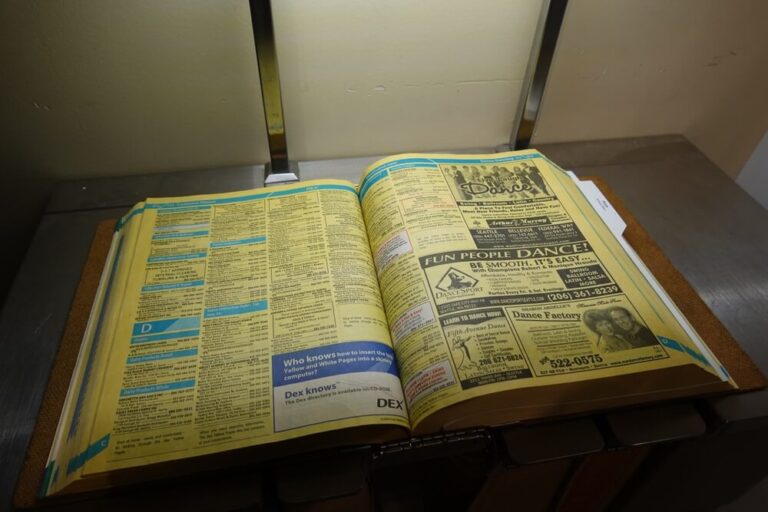The Yellow Pages began as an accident
It’s 1883, seven years after Alexander Graham Bell made the first ever phone call. A small printer in Cheyenne, Wyoming is busy at work producing a local telephone directory.
But they’ve run out of white paper, and so they switch to yellow reams.
This production quirk was unintentionally popular. In fact, it led directly to the concept of “yellow pages.” In a relatively short time, phone listings around the world were printed on yellow paper as a rule, regardless of which phone company produced them.
Then, for more than a century, these directories were the only reliable way for customers to search for a business or service.
The ubiquity of these brightly coloured booklets is hard to overstate; they were everywhere. (Each one weighed between 3 and 4 pounds on average and, in the United States, there were 1.7 yellow pages printed for every single person each year, which required cutting down 20 million trees annually.)
Moreover, these big yellow books were once worth big money.
In 2009, the entire yellow pages industry earned $26 billion in revenue — a significantly bigger number than Google’s 2008 earnings of $21.8 billion.
Fast-forward to the present tense
Nowadays, the average person touches his or her smartphone more than 2,000 times each day. Of course, few of us use our mobile phones to actually call anyone. Most of us are sending texts, checking email, or getting directions.
But we still rely on our phones to search for businesses and services.
Yet as telephones have morphed into smartphones, yellow-page directories have rapidly been losing their relevance — and last month, after lagging sales, Yell announced plans to completely cease the production of its Yellow Pages by January 2019. As the biggest producer of yellow pages, this is the final nail in the coffin for the in-print business directory.
So yellow pages are now officially a relic of the past. But if no one uses them, where do customers look to find local businesses?
With print directories gone, consumers now rely almost entirely on the web.
In fact, 83 percent of consumers now find local businesses using an online search engine, and roughly half will visit the storefront they find within one day.
But, although roughly 90 percent of consumers report searching for local businesses online, only 10 percent of small businesses have a website.
This is a growing problem. More and more customers search for services online, and this trend shows no signs of slowing down; without a website, most small business are as good as invisible.
It’s clear yellow pages will be replaced by an online solution; these directories now publish listings online instead of in-print.
But customers nowadays are Googling the service they want more often than they’re turning to old-fashioned listings.
While Yell will now advertise your business for you on Google, customers often report spending thousands of pounds for only a few leads.
Spend your money smartly
UENI is a London-based tech startup. We’re new and nimble, and we provide small businesses all over Europe with a strong online presence for a low cost.
We’ll build you a highly optimised website, list your business on Google and Facebook, and get you found in online searches. Subscriptions start at just £1 a day.
For a business owner, advertising online is complicated. There are just so many different platforms and things are always changing. Doing it well takes a lot of practice and digital know-how.
But fortunately, that’s where we come in.




